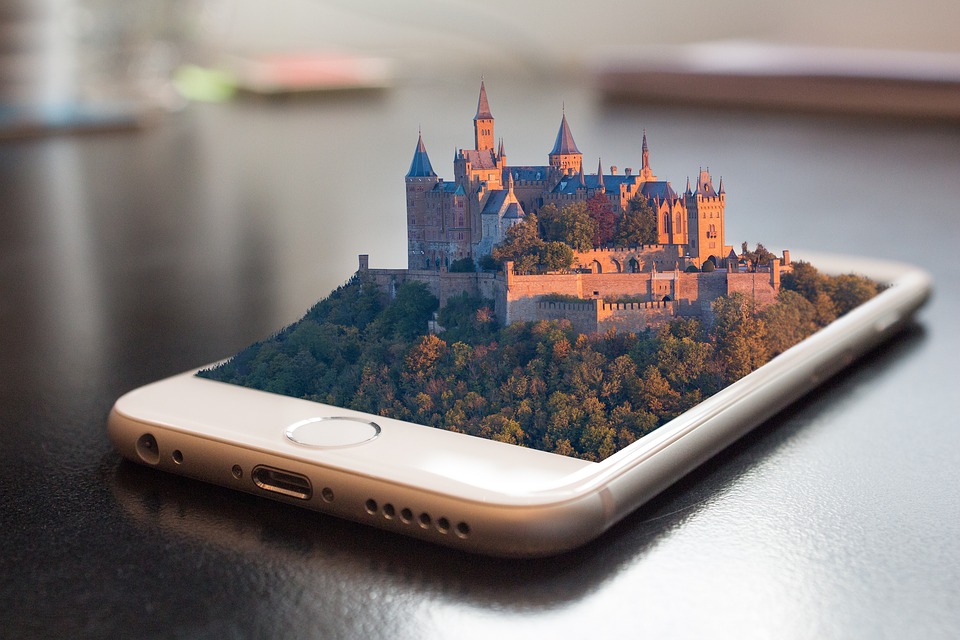Sometimes, it feels like tech is all we talk about. We discuss the new phones hitting the market, the tech we have introduced to our homes to make life easier and we also talk (often in hushed tones and late at night) about how tech is changing how we think and feel.
Because, like it or not, tech is having a massive influence on everything we do – from how much we move around to what we are persuaded to buy. The world has moved quickly and tech has made huge strides in the last 20 years – particularly since the advent of the internet. Now, we need to figure out how to live in these changeable times. And for that, we need to know how tech is changing the way we live.
In the Bubble
Possibly the most influential and least obvious way that tech is changing your life is the creation of the filter bubble. A filter bubble (a term coined back in 2011 by internet activist Eli Pariser) is “the intellectual isolation that can occur when websites make use of algorithms to selectively assume the information a user would want to see”. Facebook and other social media sites are a great example.
Filter bubbles often show the same things or type of things over and again. And, given that people tend to believe things that they agree with are true, it’s clear that filter bubbles can lead people to more extreme viewpoints and persuade them to take particular actions – the election of Donald Trump and UK’s European referendum are both good examples of how targeted advertising can sway a nation. Filter bubbles have also been shown to gradually edge people to more and more extreme political and social viewpoints, if only because these views are rarely, if ever, contradicted or challenged.
But the bubble isn’t necessarily always a bad thing. The filter bubble is great for companies who want to make use of digital marketing services to reach a particular audience. The filter bubble also helps to present relevant information to people. So, if cat videos are your thing, you will probably spend many happy hours seeing cats play with lasers or wearing a shark costume while riding a Roomba, appearing to chase a duck (Google it – you know you want to). However, it is important that people recognize when they are in a filter bubble and think more critically about what they are seeing and why.
Just knowing the technology has the ability to put you into a particular filter bubble and occasionally breaking out of it to see other things is a good idea. Social media algorithms might be influencing which media you consume but ultimately, the internet has given you the power to search whatever you like. Of course, if you really want to break your filter bubble, going out and talking to a stranger is probably the best option. You can’t predict a stranger’s perspective and you never know what you might learn.

Image Credit: Pixabay CC0 Licence
Lifestyle Choices
There’s no doubt that the tech you own and interact with changes the way that you live and the lifestyle you aspire to. Before washing machines, women would spend a large portion of their day performing household tasks manually. There’s a strong argument to say that household technologies, including vacuum cleaners, microwaves and dishwashers have revolutionized women’s lives, allowing them to enter the workforce and leading them to have children later.
The internet has also changed the way we live. Most of us now walk around with all the information we could ever need in our pockets because almost everything is a keyword search away. But even that is taken for granted, now we want our fridges to tell us when to get milk or even put in an order automatically! The internet of things is rapidly taking over our homes and, once again, our lifestyles are changing quickly.
In general terms, our lifestyles are certainly improving as a result of new technologies. We can connect to each other easily and instantaneously, we can travel greater distances in shorter timescales, and for many people, work has completely changed with technology enabling the gig economy and more flexible working. You would be hard pushed to name many industries where technology hasn’t had an impact; from medicine to education and work to play, tech is changing everything.
Of course, this change does have some downsides. Tech addiction is an extreme example of how technology – often screen-based – can go beyond being helpful and become a compulsive habit. Young teens and children are particularly at risk as they are growing up surrounded by such technologies and parents often use screens as pacifiers.
A similar problem is the constant need to ‘keep up with the Joneses’. In a world that is quickly running out of resources, the clamor to have the next shiny new technology is creating big problems. Phones are a great example of this phenomena as it seems that new models are being released all the time with greater memory, better cameras and updated software. Apple has been particularly wiley about this, releasing new models every two years – something 51% of their customers can’t resist. The irony is that people aren’t even using their phones to make calls anymore so the updates aren’t about the primary function, just added extras to make the next model more appealing.
Understanding the risks associated with technology and dealing with them is the best way to go. Technology has such an incredible potential for changing our lives that we must remain critical and make sure that we are the ones manipulating the tech and not the other way around. A clever marketing campaign might make the next phone model appear to be a ‘must-have’ item but, really, do you need a whole new handset or do you just want it?
Image Credit: Pexels CC0 Licence
Forward Motion
One of the most exciting things about tech is that you never know where the next big change will come from. Technology now underpins so many industries that the cross-pollination of ideas is rapid and unpredictable. What shakes up one industry today could well be shaking up a completely different set of ideas tomorrow. Fast-moving, trend setting companies are everywhere and to compete in any business, it’s important to keep pace.
The only problem with keeping up is the energy it takes. We are overwhelmed with information and changing landscapes. The law is struggling to keep up with technological advancements, and the environment is taking a huge hit too as we consume more and more materials and pump greenhouses gases out. Indeed, looking at the effects that all this development has had, socially and environmentally, it could be tempting to become a cave-dwelling Luddite living in the wild!
But the best thing about technology is that it is never singular. Technology can be a great force for good as well as bad. We might have internet trolls but we also have huge social movements generating interest in social justice. We might be damaging the environment but we also have the technology to cure it (if only our governments would spend on the right stuff!) Technology has the opportunity to be both the problem and the solution. Actually, it’s not that tech can be a force for good, tech must be a force for good.
Ultimately, the forward motion of technology comes down to us, people. We have to figure out the best way to navigate the knowledge we acquire and the skills we have developed. We can’t put a technology out there without considering the consequences anymore. And we certainly can’t create technologies and then blindly follow them. It’s important to remember that algorithms are still reliant on the correct inputs.
So what is the future of tech? Honestly, we have no real way to tell beyond what is already in development. Automated cars, smarter but not quite AI systems and greener air travel are all pretty high on the list as are technologies designed to clean up the environment and reverse climate change. There are a lot of problems we have to contend with, and technology is often the first port of call.
What we do know is that whatever technological inventions come next, and whatever we use tech for, it will certainly have an impact on the way we live. From the energy we use to the people we meet and chat to, technology has already changed our lives significantly and it’s fair to say that, though we can’t be sure of what the future holds, our lives are going to continue to change.
What is important now is to recognize that change must be constantly questioned and critiqued. It’s easy to amble along with tech because we are used to it and we are encouraged to adapt but a dystopian future could be drawing near. With every step, with every development, we should all be questioning how tech is changing the way we live, the good, the bad and everything in between.
